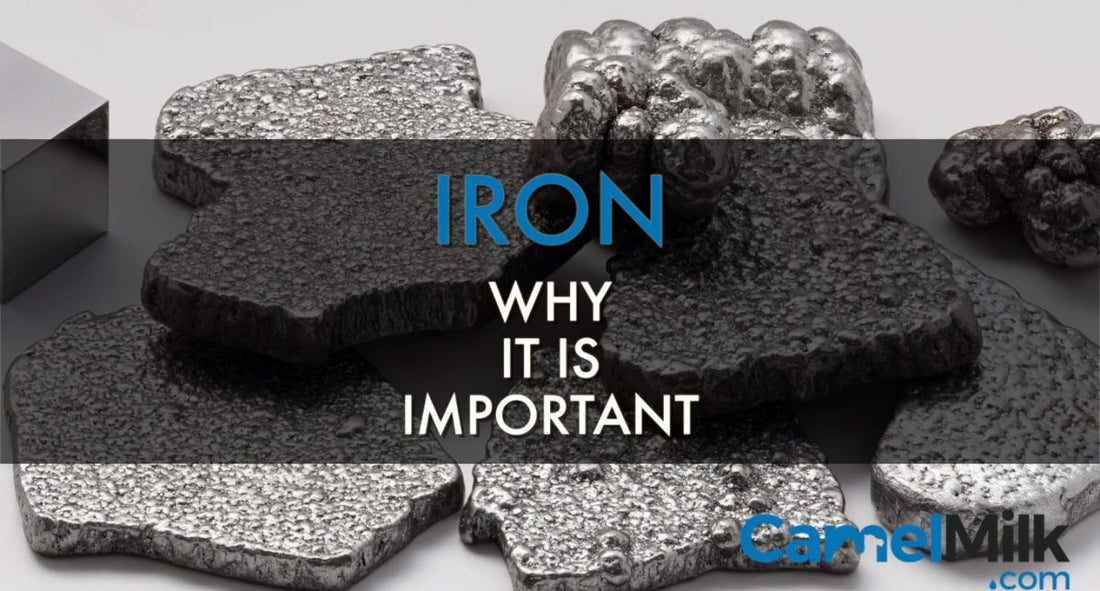Tiredness. Pale Skin. Dizziness. Fatigue. All signs of being run down and being on the go — yet more often than not these symptoms can also be a sign that you are missing on an important mineral in your body: iron.
We all know iron is important, yet it still remains a common deficiency in women (and, less commonly, in men and children).
In fact, it’s estimated that up to 80% of us might be deficient in this key nutrient. But how can we make sure we get enough iron? Especially if we’re on a plant-based diet or struggle to stomach supplements. Let’s find out…
What Is Iron?
Iron is located in the center of hemoglobin ( a large complex molecule) and plays a critical role in the body. Iron’s role is to help make red blood cells and transport oxygen around the body to tissues.
When iron takes in oxygen, it develops the bright red color which we associated with oxygenated blood. Without enough iron, our bodies can’t make enough of these oxygenated red blood cells — which then leads to our body not getting enough oxygen. This is called Iron Deficiency Anemia.
How Do I Know If I’m Not Getting Enough Iron?
First of all, know if you’re in an at-risk group. Iron deficiency is most prevalent in women of childbearing years (since they lose blood from their monthly periods).
It’s also common in those who are pregnant, those who follow restrictive diets (e.g. some vegans or who don’t get enough iron from plant-based sources) or have certain health conditions (such as Crohn’s disease and ulcerative colitis).
Secondly, make sure you’re on the lookout for symptoms of anemia. Iron deficiency anemia has a whole range of symptoms such as fatigue, tiredness, shortness of breath, feeling dizzy or faint, craving ice and a fast heartbeat.
For those with mild symptoms, there can be no symptoms at all. Overall, tiredness is the most commonly reported symptom, with shortness of breath and fast heartbeat only occurring in those with more severe cases.
What Are the Tests for Iron Deficiency Anaemia?
If you suspect your iron deficient, then seeking medical advice is important. Your doctor will be able to test your blood for a complete blood count-which will give them a clear picture of how many red blood cells your body is making. They can also look at the size of your red blood cells and how much iron is in your blood.
The latter is particularly important, as you can sometimes being deficient in iron without this being significant enough to impact your red blood -this is called Non-Anaemic Iron Deficiency or Iron Depletion. Symptoms of Iron Depletion are often very similar to symptoms to those of anemia itself.
How Much Iron Do I Need?
The amount of iron our body needs varies depending on our age and gender. It’s thought women need around 18mg of iron a day, while men only need 8mg.
However, while that might seem easy to obtain (the average American’s diet contains between 14-20mg a day); it’s thought we only absorb around 10-20% of the iron we actually consume. Meaning most of us do need to monitor how much iron we’re actually getting on a daily basis.
Good Sources of Iron
We can get iron through two sources:
- Haem iron
- Non-haem iron
Haem iron is found in meat (such as beef, liver, chicken, and turkey) while non-haem sources are things like spinach and lentils. Haem sources are much more efficiently absorbed than non-haem sources; which is why iron deficiency is more common in non-meat eaters.
However, this doesn’t mean all vegetarians need to rush out to the meat counter! Eating non-meat sources of iron (e.g. beans, tofu, spinach, and leafy greens) alongside those high in vitamin c (such as oranges, papaya, and broccoli) can help the body increase iron absorption.
There are other surprising vegan sources of iron too: camel milk is a good source of iron and contains much higher amounts of the mineral than cow’s milk.
If your iron levels are still low, your doctor might prescribe an iron supplement. These are effective at getting lots of iron into your body quickly but can often lead to side effects, namely digestive discomfort. If you are worried about this, ask your doctor if you can take a liquid supplement instead- since these appear to be more gentle on our guts. Getting as much of your iron through your diet can help alleviate these issues.
We hope you’ve found this guide to iron useful. As you can see, this mineral is crucial to our overall well being and, as a result, can have a massive impact on our health if we are not getting enough of it. Let us know in the comments if you have iron deficiency and your top tips on overcoming it!

 Log in
Log in
